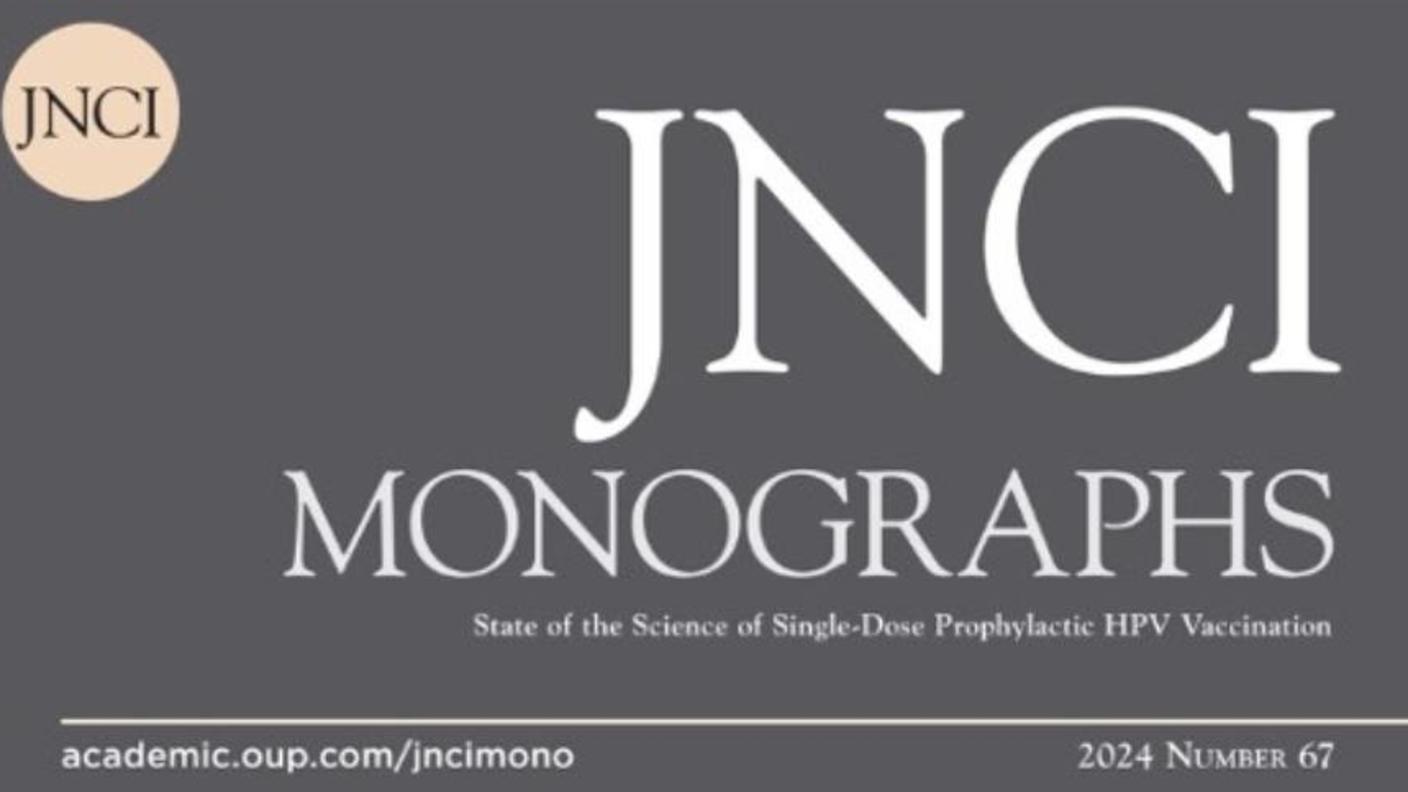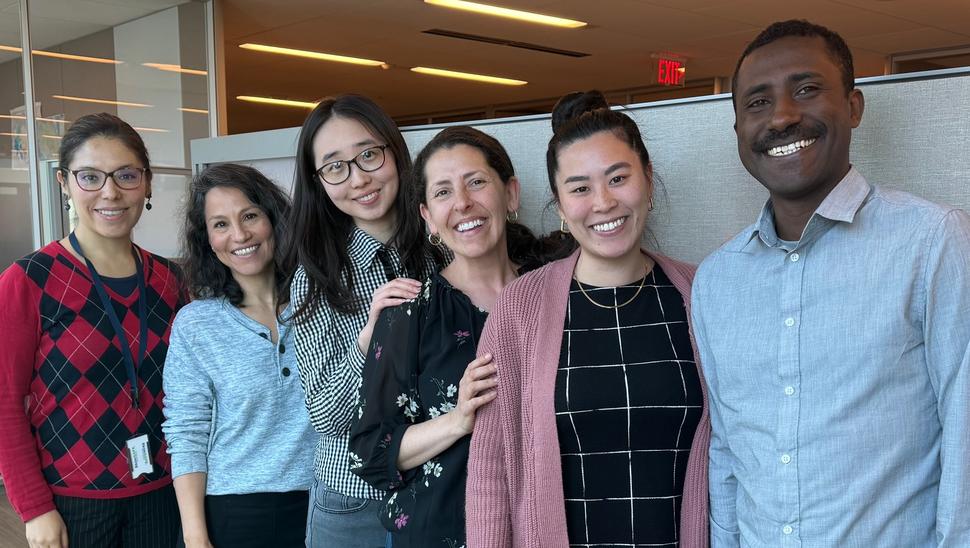
Aimée R. Kreimer, Ph.D.
NCI Shady Grove | Room 6E226
Biography
Dr. Kreimer is a senior investigator in the Infections and Immunoepidemiology Branch (IIB). She studies the etiology and prevention of human papillomavirus (HPV) and HPV-driven cancers at multiple sites, including the head and neck, and anogenital regions, with a particular focus on translational research and cancer prevention.
She received a Ph.D. in infectious disease epidemiology from the Johns Hopkins University School of Medicine, Baltimore, Maryland, Bloomberg School of Public Health and conducted postdoctoral research at the International Agency for Research on Cancer (IARC) in Lyon, France, and the National Cancer Institute (NCI). Dr. Kreimer accepted a tenure-track position in IIB in December 2008 and was awarded tenure in June 2015. Since 2014, Dr. Kreimer has been an Adjunct Associate Professor in the Otolaryngology, Head and Neck Surgery Department, Johns Hopkins School of Medicine.
Dr. Kreimer has received numerous awards, including an NCI Director's Individual Award for Emerging Leader in the category of NCI Champions (2022) for leading a world-class program in HPV research and providing outstanding service to the scientific community; an NCI Director’s Group Award for Strategic Planning to advance DCEG's top strategic goals (2022); and the 2022 DCEG Outstanding Mentor Award. In 2021, she was elected to serve a three-year term as a DCEG Woman Scientific Advisor and was elected to the Executive Board of the International Papillomavirus Society. Dr. Kreimer championed a collaborative fellowship between NCI and Costa Rica to promote training in all aspects of cancer research, treatment, and prevention to increase research capacity within the country. She serves as an officer of the International Papillomavirus Society.
Research Interests
Dr. Kreimer’s scientific interests lay in the evaluation of:
- The performance of prophylactic HPV vaccines, with a particular focus on the protection afforded by a single dose;
- Understanding the etiology and natural history of HPV infections at multiple anatomic sites to inform primary and secondary prevention programs; and
- HPV 16-induced immunity, especially for the early antigens of the viral genome, as a possible biomarker for HPV-driven cancers.
HPV infection is one of the most important human carcinogens, causing nearly 700,000 cancer cases per year worldwide, the majority of which are due to cervical cancer in low- and lower-income countries. It is well established that persistent infection with HPV 16, 18, or other carcinogenic HPV genotypes is the necessary, but not sufficient, cause of cervical cancer. Infection with HPV 16 is an established risk factor for some cancers at additional anatomic sites, including cancers of the anus, oropharynx, vagina, vulva, and penis. HPV 16 causes about 50% of cervical cancers and upwards of 90% of the non-cervical HPV-driven cancers.
Dr. Kreimer's Research Team
Dr. Kreimer's research is supported by a team of fellows and scientific staff.
Staff and Trainees
Jaimie Z. Shing, Ph.D., M.P.H., Staff Scientist
Jun Tao, Ph.D., Postdoctoral Fellow
Adino Tsegaye, Ph.D., M.P.H., Postdoctoral Fellow
Any prospective fellows interested in working with our team, please contact Dr. Kreimer at the email address above.
HPV-associated Cervical Cancer
Dr. Kreimer is the NCI principal investigator on several prophylactic HPV vaccine trials aiming to evaluate reduced dose HPV vaccine schedules, including the Cancer “Moonshot” Initiative “ESCUDDO: A Randomized Trial of One-Dose HPV Vaccination.”
Dr. Kreimer leads the Costa Rica HPV Vaccine Trial (CVT) long-term follow-up study, a study that started as a randomized controlled trial to evaluate the efficacy and safety of the bivalent HPV vaccine prior to its licensure, in collaboration with Agencia Costarricense de Investigaciones Biomédicas–Fundación INCIENSA (ACIB-FUNIN), and transitioned to an epidemiologic cohort study for the long-term follow-up phase. Using data from this study, Dr. Kreimer and colleagues were the first to demonstrate that the vaccine efficacy against incident persistent HPV 16/18 infection was comparably high among women who received three, two, or even a single dose of vaccine four years after HPV vaccination. They continued to evaluate this question and showed that a single dose continues to provide robust protection a decade after HPV vaccination. The investigation team has also documented that the bivalent vaccine strongly protects against HPV infections at essentially all non-cervical anatomic sites where HPV causes cancer in women (i.e., the anus, vulva, and oral region), and that the level of protection was comparably high to that observed at the cervix among the same women. The CVT field effort is ongoing; a subset of women is expected to be followed for a median of 20 years following the initial vaccination to document the durability of single- and multi-dose HPV vaccination.
CVT is an important source of data that has generated numerous scientific publications and continues to advance the science of HPV vaccination, natural history, and cervical cancer screening among vaccinated cohorts. Data from CVT and other studies (India, KenSHE in Kenya and DoRIS in Tanzania) were used by the World Health Organization’s Strategic Advisory Group of Experts on Immunization (SAGE) to issue an off-label, alternative single-dose HPV vaccine schedule recommendation for use in the primary target of girls aged 9–14 years, and even up to age 20 years.
While the data on single-dose protection of the bivalent HPV vaccine are compelling, they currently appear inadequate to justify an unequivocal change in current HPV vaccine recommendations. Dr. Kreimer and her team developed additional trials to formally evaluate the efficacy, immune response, and potential public health impact of a single-dose strategy.
Dr. Kreimer and her NCI team, again in collaboration with ACIB-FUNIN, implemented the ESCUDDO Efficacy Trial (Estudio de Comparacion de Una y Dos Dosis de Vacunas Contra el Virus de Papiloma Humano), a large, randomized, controlled, noninferiority efficacy trial designed to formally investigate the protection afforded by a single dose of the bivalent Cervarix® and nonavalent GARDASIL®9 HPV vaccines in Costa Rica. The main goals of the trial are to evaluate whether, in adolescent girls, one dose of these vaccines confers strong, durable protection against persistent HPV 16/18 infections compared with two doses. Virologic endpoints are necessary in the evaluation of a one-dose schedule, as one-dose antibody levels are lower than those of two doses, and presently, the minimum antibody level required for protection is unknown. Separately for each vaccine, one dose will be tested for noninferiority of efficacy compared with the two-dose regimen. Analyses will also be conducted to estimate the vaccine efficacy versus no vaccination using a concurrent population survey of comparable, unvaccinated age-matched women from the same region, who will be tested for HPV DNA and then immediately vaccinated. Immunogenicity induced by these different vaccine dose schedules and vaccine products will be compared. Study results are expected in 2025 and are intended to provide definitive results for recommending bodies, if warranted.
The same investigator team is running two additional trials aimed at accelerating single-dose HPV vaccine results and even cervical cancer control. PRIMAVERA (Puente de Respuesta Inmunológica para Mejorar el Acceso a Vacunas y ERrAdicar el cancer, Clinicaltrials.gov NCT03728881), a non-randomized, open-label, immunogenicity trial, compares one dose of the bivalent Cervarix® HPV vaccine in girls (9–14 years) to three doses of the quadrivalent Gardasil® HPV vaccine in women (18–25 years) in Costa Rica. PRIMAVERA aims to provide evidence that a single dose of the HPV vaccine will elicit an immune response sufficient to protect against targeted HPV infections and subsequent neoplasms.
To accelerate the impact of HPV vaccine and thus cervical cancer control, Dr. Kreimer and her team, in collaboration with ACIB-FUNIN, launched the PRISMA Trial (PRevencIón del Cáncer Cervical con una Sola dosis de vacuna contra VPH en Mujeres Adultas jóvenes, Clinicaltrials.gov NCT05237947) in 2022, to evaluate if one dose of the bivalent or nonavalent HPV vaccine is sufficient to reduce the risk of HPV infection in young adult women up to the age of 30. If one dose of the HPV vaccines provides these women adequate protection, it can increase opportunities for cervical cancer prevention and provide a tangible method for accelerating cervical cancer control, especially for women who may not have access to high-quality cervical cancer screening or effective diagnostic follow-up and treatment of cervical precancers. Evidence generated from PRISMA can be used to expand the recommendation for single-dose HPV vaccination to age 30 in the United States and globally, and may inform a campaign-oriented vaccine-screening approach that shortens the timescale for cervical cancer control.
Despite the great potential of HPV vaccination, older adults (likely unvaccinated) will continue to experience HPV-driven cancers. Therefore, continued research into possible secondary prevention will remain necessary, in order to identify and improve approaches to truncate HPV infections on the pathway to disease and cancer.
HPV Vaccine Efficacy at Extracervical Sites
Given the many similarities between HPV-related cancers at the cervix and other anatomic sites, researchers are optimistic that the HPV vaccine will provide long-term protection against extra-cervical infections and cancers. The vaccine has already been shown to confer near-complete protection over four years against oral, vulvar/vaginal, and anal HPV infections for targeted HPV types. Dr. Kreimer is currently extending this research to determine if the protection lasts for 10 years. The NCI-sponsored Costa Rican community-based randomized phase III clinical trial recently completed collection of oral, vulvar, and anal specimens from women in the long-term follow-up phase and plan to test these specimens for presence of HPV DNA. The main aim of this proof-of-principle study is to determine the long-term impact of HPV vaccination in preventing infections at all mucosal epithelial surfaces.
Cancer Risk Prediction Using HPV Antibodies
Dr. Kreimer and colleagues from the International Agency for Research on Cancer (IARC) and the German Cancer Research Center (DKFZ) discovered that the HPV 16 E6 antibody marker predicts risk of oropharyngeal cancer years before cancer development. They validated their discovery in an independent U.S.-based NCI cohort, the Prostate, Lung, Colon, and Ovary (PLCO) Screening Trial. Based on these findings, Dr. Kreimer and team formed the HPV Cancer Cohort Consortium (HPVC3) involving nine prospective cohort studies from Europe, North America and Australia. The main aim of HPVC3 is to evaluate HPV antibodies and risk of HPV-driven cancers, with a focus on oropharyngeal and anal cancer, but also including penile, cervical, vaginal, and vulvar cancer. Blood was collected up to 40 years prior to cancer diagnosis in this pooled effort. Findings indicate that HPV 16 E6 can be present decades prior to oropharyngeal cancer diagnosis, which confers risk that may warrant periodic, minimally invasive surveillance after a positive HPV 16 E6 serology test. Dr. Kreimer continues her work on this line of inquiry, and in parallel investigates HPV 16 E6 seroprevalence and kinetics in people without cancer, aiming to better describe the natural history of HPV-driven cancer using the HPV 16 E6 as marker prior to cancer diagnosis. This work is particularly important in the United States and other countries where the incidence rate of oropharyngeal squamous cell carcinoma is increasing faster than most other cancers, particularly in men.
Information for Journalists
To request an interview with a DCEG investigator, please complete this form: Request For Comment | HHS.gov.

